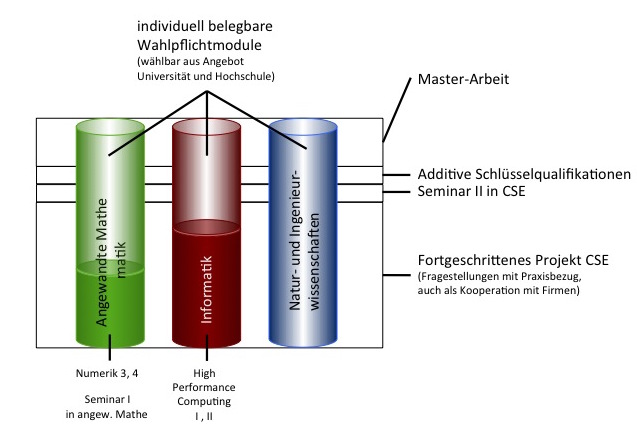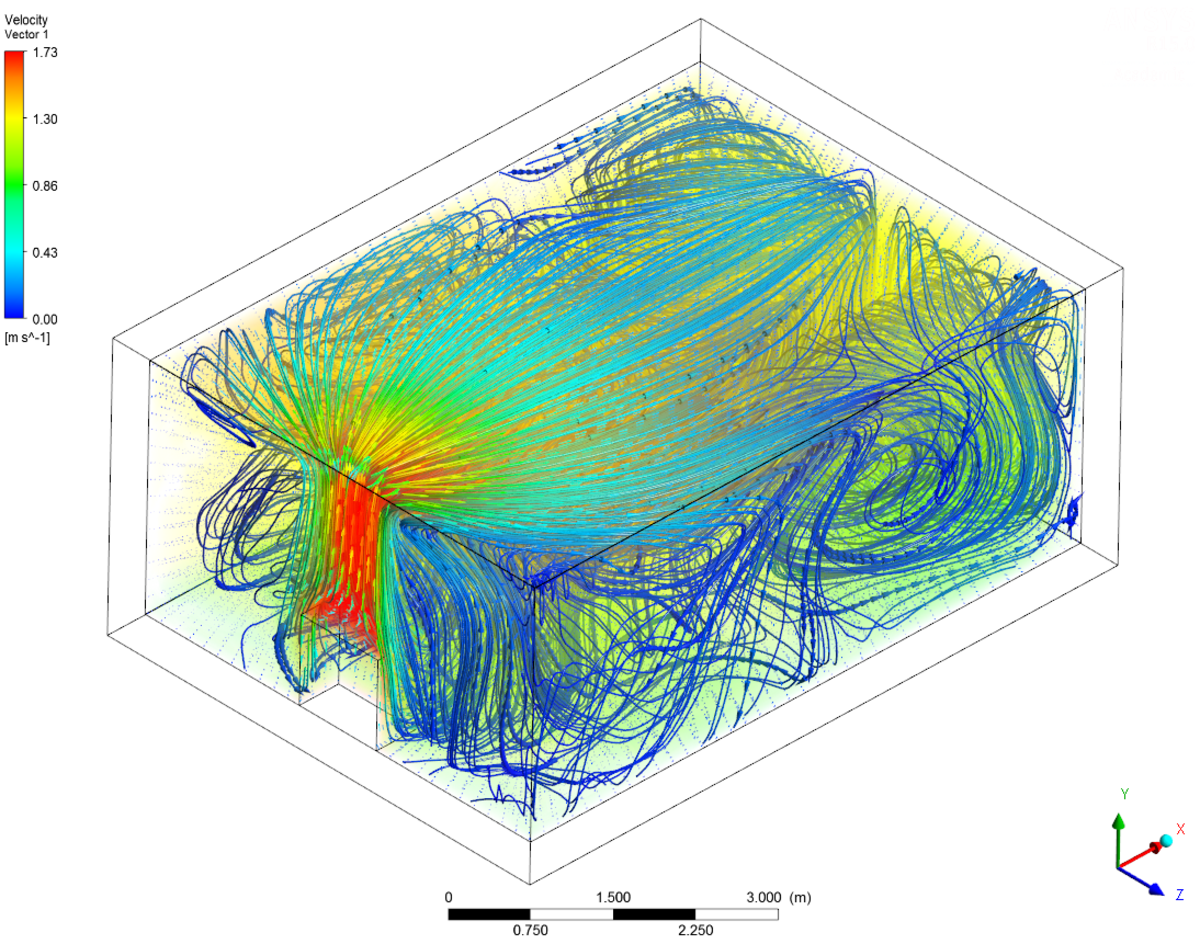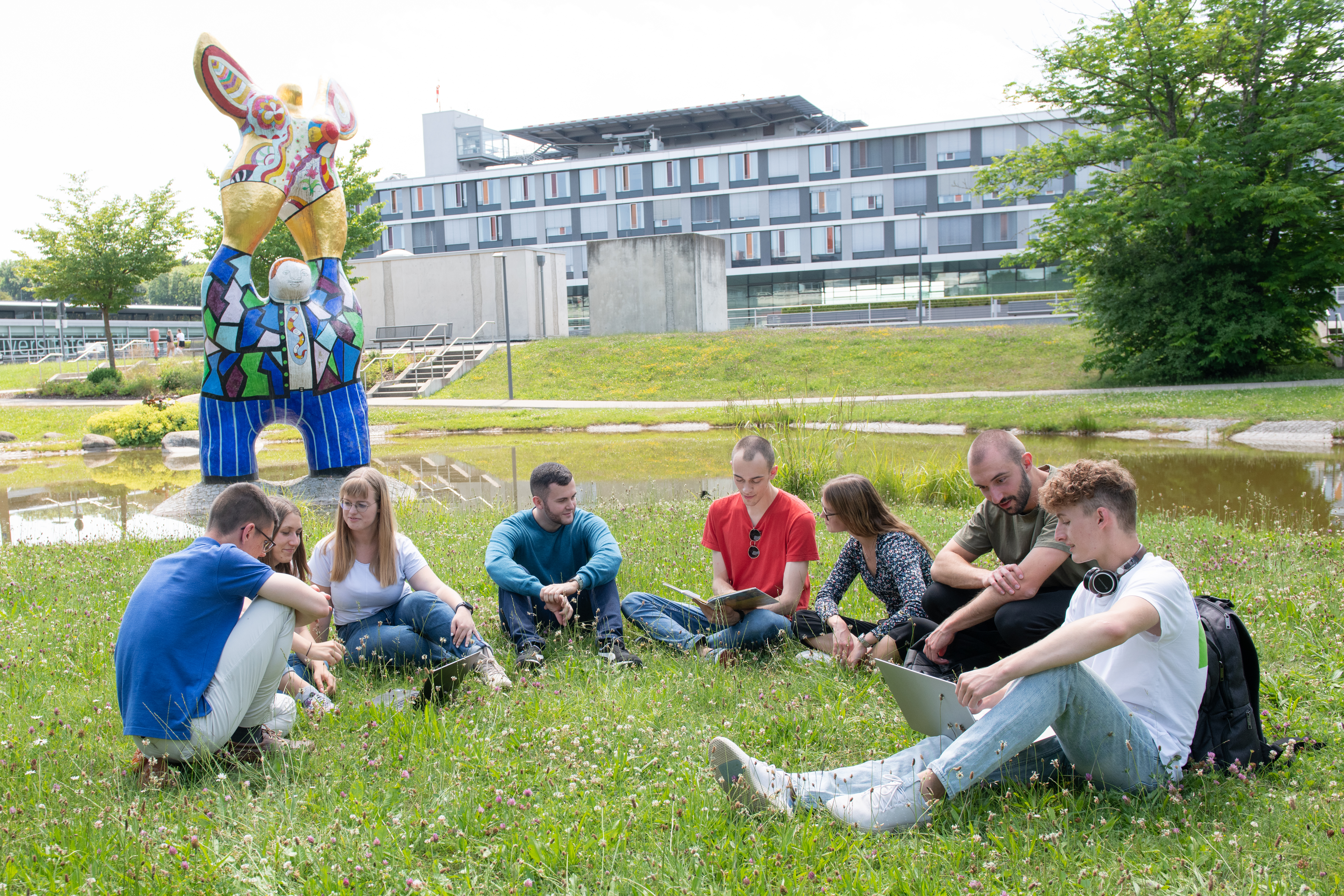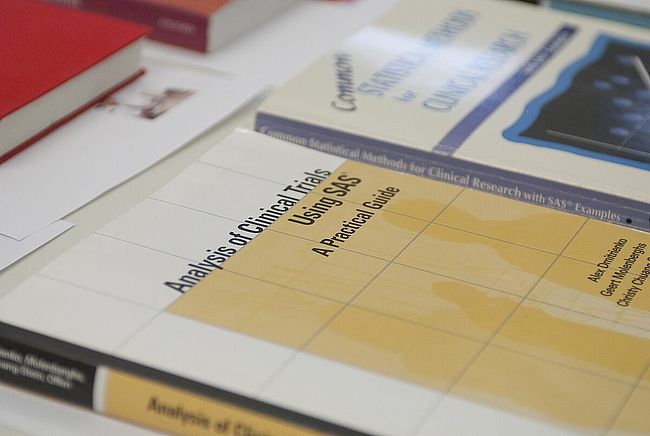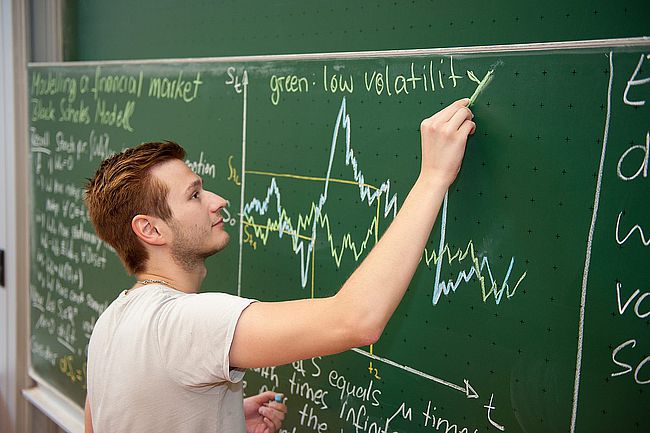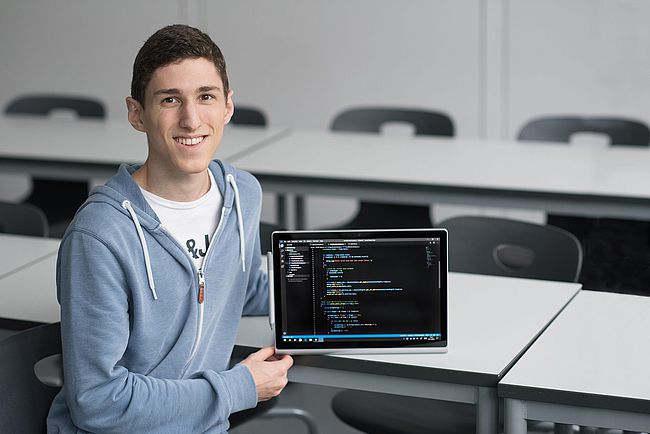Study objectives
The aim of the master's programme in Computational Science and Engineering (CSE) is to provide graduates with interdisciplinary skills in the fields of mathematical modelling, optimisation and numerical simulation of real processes in the natural and engineering sciences with a focus on research and practical application.
The programme focuses on imparting broad application-oriented mathematical knowledge, specialist knowledge in mathematical modelling, optimisation and numerical simulation of real processes in the natural and engineering sciences.
Graduates of the master's programme in Computational Science and Engineering (CSE) also have the following skills:
- They are able to grasp complex problems from the fields of natural sciences and engineering and independently model them mathematically.
- They are able to develop suitable numerical methods and implement them efficiently on high-performance computers.
- They are able to evaluate the simulation results independently.
- They are able to independently lead a research group and plan projects.


